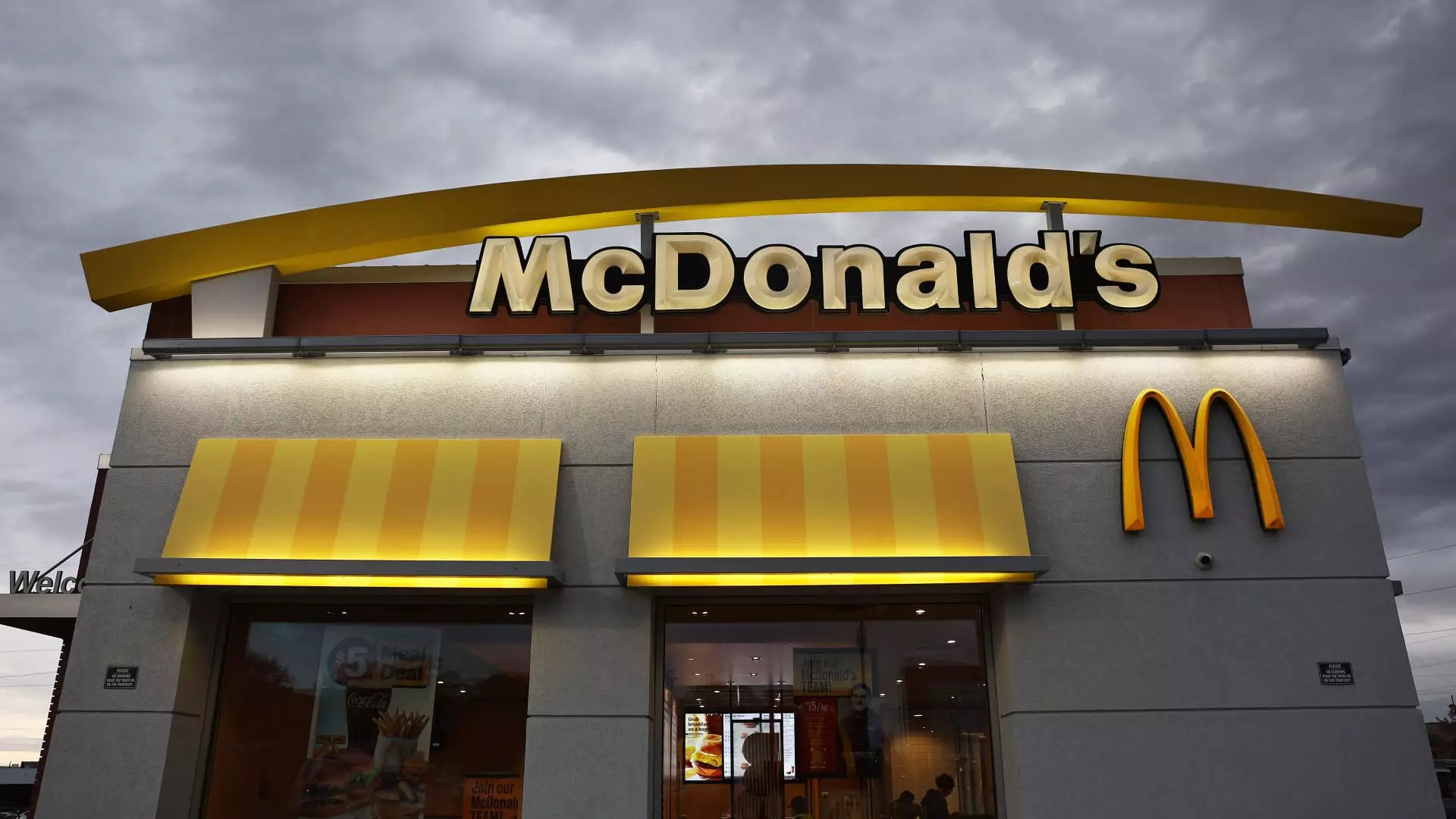McDonald’s, one of the world’s leading fast-food chains, faced significant challenges in its latest quarterly results, primarily due to declining sales within the U.S. market. The company disclosed a revenue of $6.39 billion, slightly underachieving analysts’ forecasts of $6.44 billion. Notably, its earnings per share (EPS) matched expectations at $2.83, bringing some solace to stakeholders as it navigates through tough market conditions. The fast-food giant recorded a net income of $2.02 billion—equating to $2.80 per share—which represents a minor decrease from the previous year’s net income. This highlights a slight but notable impact of pressing issues affecting customer footfall and spending habits in its domestic locations.
The most critical factor contributing to this sales disappointment was a deadly E. Coli outbreak linked to McDonald’s Quarter Pounder burgers. The Centers for Disease Control and Prevention (CDC) identified the contaminated slivered onions as the source, leading the company to switch suppliers to avoid any further incidents. Such health crises can severely damage consumer trust and brand reputation. Following the outbreak declaration, traffic to U.S. locations witnessed a sharp decline, demonstrating the immediate repercussions of health-related concerns on customer behavior. Although the outbreak was officially declared over by December, the shadow of the incident lingered, impacting customer confidence.
Despite a broader same-store sales increase of 0.4%—which was a pleasant surprise given Wall Street’s projected fallback of 1%—the discrepancies within U.S. operations are particularly concerning. The 1.4% drop in domestic same-store sales starkly contrasts with the overall slight growth, indicating an acute decline in American consumer expenditure at McDonald’s establishments. Interestingly, while traffic remained slightly positive, customers appear to be spending less, raising questions about shifts in consumer spending behavior and the efficacy of promotion strategies.
In an effort to combat declining sales figures, McDonald’s introduced a $5 combo meal over the summer aimed at drawing in budget-conscious diners. This initiative proved somewhat effective for third-quarter sales, yet analysts caution that such value-centric strategies only yield comprehensive benefits if they encourage customers to add regular-priced, higher-margin items to their orders. This dependency emphasizes a broader concern that reliance on discounts might dilute perceived value and profit margins over time, especially if it fails to increase overall sales volume.
While the U.S. segment struggled, McDonald’s experienced a contrasting trend in international markets. The international developmental licensed markets segment reported a commendable 4.1% same-store sales growth, reinforcing McDonald’s reputation abroad. This included strong performances in regions such as the Middle East and Japan, showcasing resilience and continued customer engagement in these markets. Conversely, the international operated markets, which encompass several key global territories, reported a more modest 0.1% boost.
Despite seeing positive figures in many locales, specific markets like the United Kingdom exhibited shrinking sales, highlighting the uneven recovery across different territories. This disparity prompts essential considerations regarding regional economic conditions, consumer preferences, and competitive landscapes that McDonald’s must navigate strategically in varying contexts.
The path ahead is fraught with challenges for McDonald’s as it aims to regain lost momentum, particularly within the U.S. market. While promotional strategies such as value meals can attract price-sensitive customers, they need to be part of a broader, more integrated approach to enhance menu appeal and improve dine-in experiences. The chain may also benefit from investing in marketing strategies aimed at rebuilding trust and transparency with its customer base in the aftermath of the health scare.
Overall, while McDonald’s displays resilience in international markets, revitalizing domestic operations stands as a priority. The company will need to leverage its global experience and adapt initiatives to meet the nuanced expectations of U.S. consumers, emphasizing health and quality alongside value. Continuous monitoring and adapting to consumer feedback will be essential in steering the brand through these tumultuous times.


Leave a Reply